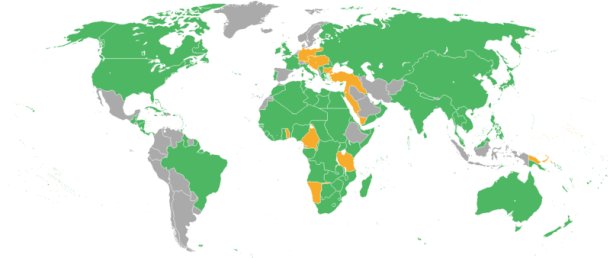Quick NotesQ: When did World War 1 Start?
Austria – Hungary declared war on Serbia on July 28th, 1914
Q: What started World War 1? How did World War 1 Start?
The assassination of Austria-Hungary’s heir of the throne, Archduke Franz Ferdinand sparked a war between Austria – Hungary and Serbia, which caused a number of other countries to get involved due to the treaty alliance system.
Q: Why did World War 1 start?
Once Austria-Hungary declared war on Serbia, Russia stepped in, causing Germany to step in. France, Britain, Belgium, and many other countries then followed. Eventually, because Germany was blocking a majority of their commercial shipments, the United States was forced to enter into the war despite President Woodrow Wilson’s statement declaring the United States’ neutrality.
An In-Depth Look: What Started World War 1?

Gabro Princip as he is arrested shortly after assassinating Prince Franz Ferdinand in Sarajevo (Photo credit: Wikipedia)
World War 1 was caused by a series of events triggered by Serbia’s response to Austria-Hungary’s demands, and the treaty alliance system that ensured that many other countries would be drawn into the conflict.
At the start of World War One, Europe was a powder keg waiting to be lit. As soon as Archduke Franz Ferdinand - the heir of Austria-Hungary’s throne - was assassinated on June 28, 1914, the fuse was lit. Ferdinand’s death happened under the care of the Black Hand, a Serbian nationalist secret society and it caused a series of events culminating into the world’s first ever global war.
Common knowledge suggests that the war started all because of the assassination of Archduke Franz Ferdinand of Austria but this notion isn’t 100% correct.
Austria-Hungary’s Reaction to the Assassination of Their Heir
Surprisingly, the people did not care about the assassination itself. Even the Austrian newspapers reported that it was a general consensus amongst political circles that the assassination was for the best. The emperor Franz Josef expressed his relief because he didn’t like Ferdinand at all.
Nobody cared about the assassination itself, but there had been thoughts of a ‘preventative war’ that they wanted to wage against Serbia. This war was meant to be short and sweet but due to the treaty alliance system that was in place, a small conflict turned into one of the bloodiest wars in human history with over 15 million deaths.
Austria-Hungary reacted to the death of their heir by taking the opportunity to come down strong on the Serbians to crush the nationalist movement residing in the country and thereby cementing their influence on the Balkans. They now had the support of the German’s who promised that they would aid in a war with Serbia, and possibly Russia if they chose to go into battle.
Austria-Hungary did not expect Russia to join in on the war as it was expected to be a small one that would be over fairly quickly.
After waiting three weeks, Austria-Hungary issued Serbia an ultimatum with demands that the assassins be brought to justice. Austria-Hungary issued an ultimatum to Serbia with severe terms hoping that Serbia would deny compliance and they would be able to go into a limited war to reclaim territory on the Balkans.
Serbia got the ultimatum and they responded in a positive manner, but changed a few clauses in their response. Austria-Hungary saw this as a reason to go to war.

A map of World War 1 participants: Green - Allied powers, Orange - Central Powers, Grey - Neutral (Photo credit: Wikipedia)
A series of events occurred due to the existing treaties between different states and groups of nations, which escalated a small clash into the first giant war. This is the sequence of events that led to the ‘Great War’ – a name that had been given to the war before it even started:
1. Austria-Hungary was unsatisfied with the response that Serbia gave them after they received the ultimatum. Their response was almost entirely in compliance with Austria-Hungary’s wishes but a few minor clauses in the response made Austria-Hungary wish to wage battle. They declared war on Serbia on July 28th, 1914.
2. Russia announced that they were mobilizing an army to Serbia’s defense. Russia was very slow in their process and it took about six weeks to finally get moving.
3. Germany and Austria-Hungary formulated a treaty before they waged war and they declared war on Russia.
4. France was bound to an agreement with Russia and was forced to step in to go to war with Germany. Germany declared war against Belgium and invaded so that they could have easy access to France when they wanted to attack.
5. Britain was an ally of France and due to the existing treaty, declared war against Germany. Germany did not expect that Britain was going to enter into the war because the treaty they had with France was written in loose wording. The two countries weren’t entirely bonded and Britain wasn’t expected to help. However, Britain had a very old treaty with Belgium as well so they decided to enter into the war and wage battle against Germany.
6. Canada, India, Australia, South Africa, and New Zealand entered the war as colonies of Britain.
7. Japan honored its treaty with Britain and they went to war against Germany.
8. In 1917, the United States decided that they would join the war. Originally, President Woodrow Wilson declared absolute neutrality in a United States policy. Originally, they had not wanted to but German submarines were hindering the United States’ commercial shipping operation. The United States was shipping supplies to their allies.
9. Italy was an ally to both Germany and Austria – Hungary, yet they avoided entering the war in the beginning by crafting a clause that would enable them to wave obligations to both parties. Eventually, they were forced to enter the war on the side of the Allies in May 1915.